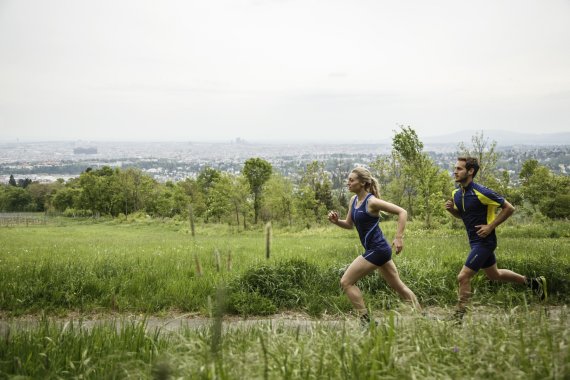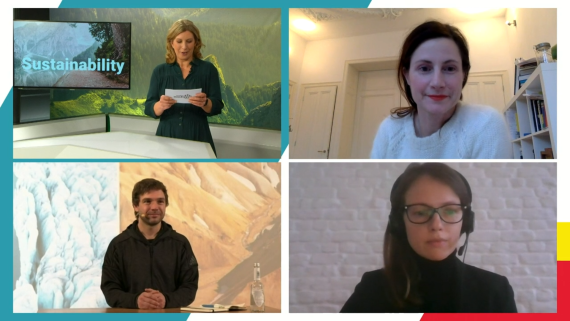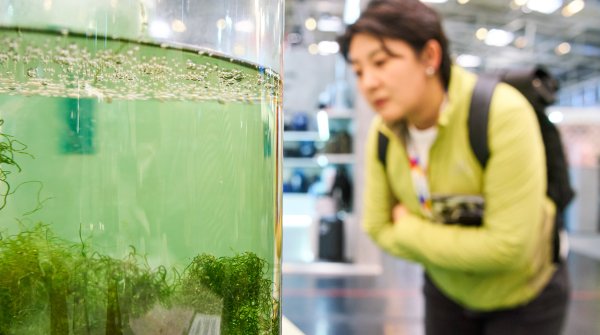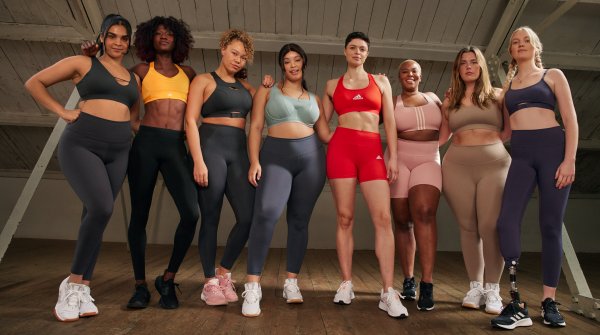
"Business as usal will no longer work!". Katrin Ley summed up the core message right at the beginning of the top-class panel discussion on the topic of "Circularity" at ISPO Munich Online. With the sustainability and innovation platform Fashion for Good, the managing director exemplifies the necessary change in the sports and textile industry.
After all, the EU is now also putting legal pressure on the circular economy. "Sustainable products and circular economy are to become the market norm. That is the clear goal by the end of this decade and we want to be a role model for the whole world with it," Helena Braun announced during the discussion. She is a member of the team of EU Commissioner Franz Timmermans, who is responsible for the European Green Deal in the cabinet of President Ursula von der Leyen.
And changes in ecology and sustainability are high on the EU's list of priorities. Following the adoption last year of the "EU Circular Economy Action Plan adopted last year, there are to be clear guidelines by the end of this year for the textile sector, which has so far been centrally classified because of its less sustainable production methods.
"We want to change how products are consumed and produced. They should become recyclable, repairable and more durable," said Braun. In addition, new business models such as product as a service should be supported.
Similar legal regulations had been enacted for the plastics industry during the last legislative period. Due to the ongoing discussion process, Helena Braun was not yet able to give many details about the planned regulations in the textile sector. But some things are already on the horizon: "A compulsory percentage of sustainable products could be introduced. In addition, we want to ensure that the market for recycled textiles functions across countries in the EU and that companies also have reliable access to it." So far, only one percent of textiles are recycled, the rest end up in the garbage.

Braun invited all players in the sports and textile industry to participate in the ongoing legislative process: "Everyone can contribute. It's not about restrictions, but the measures should bring a benefit for the people and the industry." The EU-supported "New Cotton Project" shows how this can work in a meaningful way. In it, numerous major brands, organizations and universities from Europe are working together to produce commercial clothing completely in a circular model for the first time worldwide.
In concrete terms, this means that the Finnish biotechnology company Infinited Fiber Company collects textile waste, processes it and produces new fibers from it. These are then processed into commercial clothing by large companies such as H&M or adidas. At the end of the use phase, the clothes can be returned and the process starts all over again.
"This fits into our corporate goal of making a difference for people and changing their lives. The motto is Made to Remade," said James Tarrier, Director Platform Innovation at Adidas Futures Team, explaining the brand's participation in the pioneering project.
Fashion for Good supports exactly such actions by bringing disruptive, innovative startups together with big brands. So that such circular processes reach the mainstream.
"So far, the process is mostly linear. Clothes are produced using a lot of resources and then end up in the trash at some point. That has to change," Ley demanded: "For that we need innovation, cooperation along the whole supply chain and the support of politics." Only in this way can sustainability and the circular economy eventually become "business as usual".
- ISPO awards
- Mountain sports
- Bike
- Design
- Retail
- Fitness
- Health
- ISPO Job Market
- ISPO Munich
- ISPO Shanghai
- Running
- Brands
- Sustainability
- Olympia
- OutDoor
- Promotion
- Sports Business
- ISPO Textrends
- Triathlon
- Water sports
- Winter sports
- eSports
- SportsTech
- OutDoor by ISPO
- Heroes
- Transformation
- Sport Fashion
- Urban Culture
- Challenges of a CEO
- Trade fairs
- Sports
- Find the Balance
- Product reviews
- Newsletter Exclusive Area
- Magazine






